Skudge: "Getting an analogue sound in the box is easier than it’s ever been"
Techno purist Elias Landberg’s fourth Skudge album displays a master craftsman at work. Danny Turner dives in
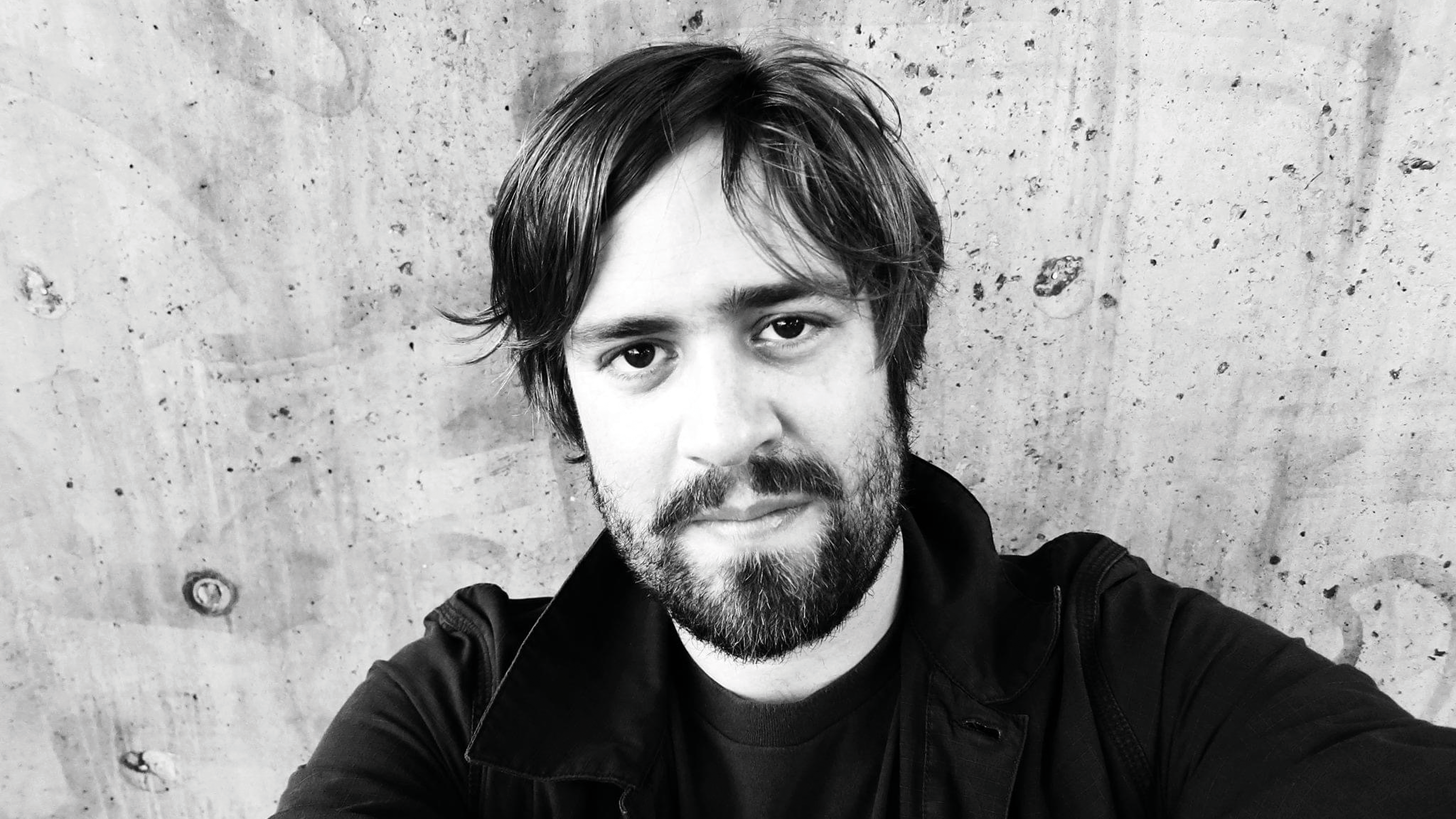
Want all the hottest music and gear news, reviews, deals, features and more, direct to your inbox? Sign up here.
You are now subscribed
Your newsletter sign-up was successful
Initially a duo, Elias Landberg’s now solo project Skudge arrived in 2011 with the economical techno LP, Phantom.
Following Gustaf Wallnerström’s departure, Landberg widened his sound palette on the flawless, cerebral-sounding album Balancing Point and 2020’s equally intricate yet more house-oriented Time Tracks.
An in-demand DJ, oft found residing at techno hubs such as Fabric and Berghain, Landberg has kept a low profile while continuing to release music on his own Skudge Records. His refusal to compromise couldn’t be more apparent on his latest Skudge album, Soundworks, where sparse yet adrenal techno merges past and future with uncanny precision.
Did Sweden have a buoyant techno scene when you were growing up?
“The legal scene, if you can call it that, was very small, and the ‘rave police’ closed down a lot of the clubs because of a problem with drugs. The parties were great and there were lots of them. The best club in Stockholm back then was called Docklands, which was open from 10pm to 10am but they closed it down in early 2000. It’s still called Docklands, but they rebuilt it and people are now living in that building instead. When we started Skudge, there was a club called 2.35:1 at Berns in Stockholm where most of the DJs and artists were playing. That was great too, but now it’s become more commercial.”
Did you start making music before the birth of the minimal techno sound?
“I’ve been making music since 1997, if not longer because I played drums when I was a child and was in a grunge/punk band. I have pretty broad tastes, but when I listen to music it’s mostly ’90s hip-hop and I get a lot of influences from that because I like the sounds and the gritty, lo-fi production. I also like a lot of ’90s techno, like Mr. G, G-Man, Jeff Mills and Robert Hood – all the obvious ones. But I don’t see Skudge as minimal techno, it’s somewhere between techno and house.”
Want all the hottest music and gear news, reviews, deals, features and more, direct to your inbox? Sign up here.
How has Skudge Records evolved?
“When we started Skudge Records we didn’t take things that seriously. We sent out demos but always got negative replies from labels who wanted to change this and that. A lot of them said no to our biggest hit Convolution, which was a big miss for them because we’ve re-pressed that release at least three times.”
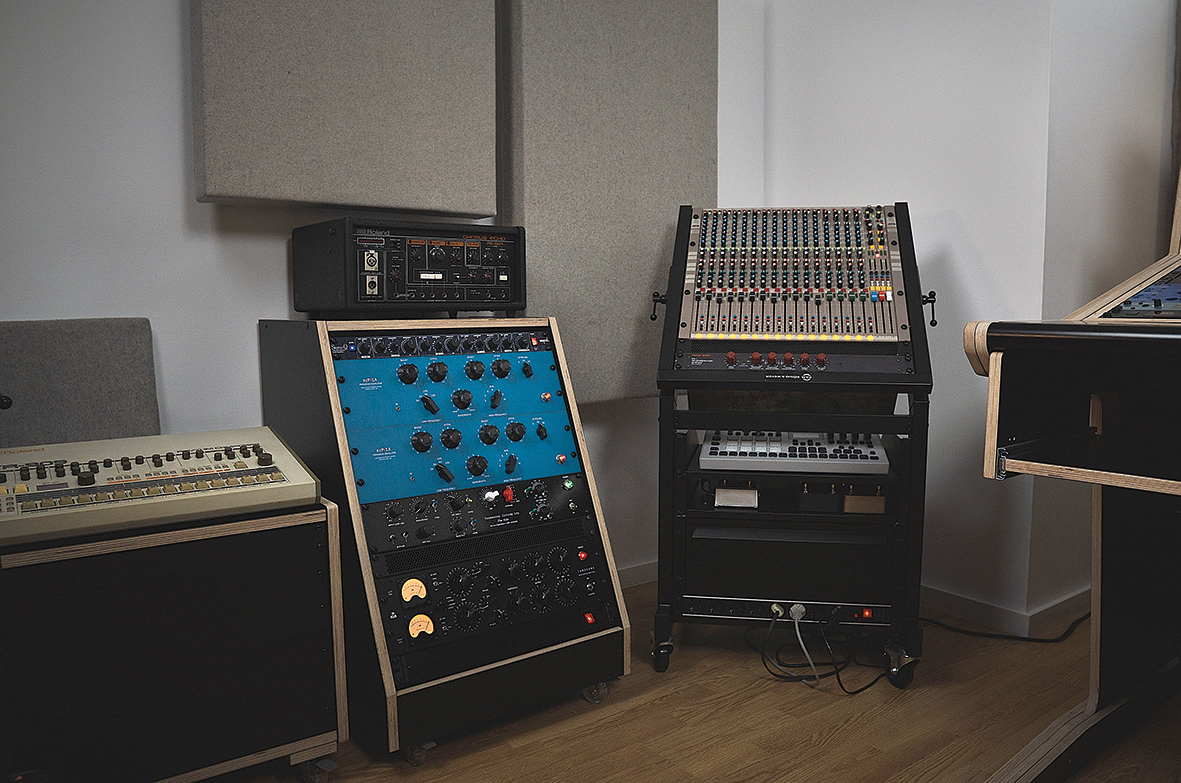
Skudge was initially a duo, of course. Was going solo a freeing experience?
“Skudge has been my solo production project since 2013. Phantom was the only album that Gustaf and I made together, but we didn’t need to compromise because we had exactly the same tastes. He’s ten years younger than me and wanted to do something else with his life rather than trying to live off making music. I haven’t thought about whether that was a positive thing because we worked very well together, but of course it’s easier to work on your own.”
What were you using to produce tracks with in those early days?
“Back then we were 80% in the box. It’s kind of funny because everybody thought we were only using hardware – and even wrote about that. I can understand why, but we didn’t even have a 909. If you know what you’re doing, you can make software sound like hardware. We’d just put stuff through a Roland RE-501 Chorus Echo and a Studer reel-to-reel tape machine, although I sold that two years ago and replaced it with analogue mixing gear.”
Are you motivated more by the emotion of the music or the creative puzzle that is putting a track together?
“I need a vibe to come from the music I’m making otherwise I put it aside and start something new. I don’t know what the rules are when it comes to making techno because I’ve created my own sample library using the same sounds since 2010. Every release has a lot of the same noises, but people might not hear that. Basically, I take out the sounds from previous tracks, change and re-use them because I want Skudge to sound like me. I’m not the sort of person that will look for a kick drum for ten hours because I already have a kick drum that I’m happy with so I’ll just use that on all the tracks but maybe EQ it differently.”
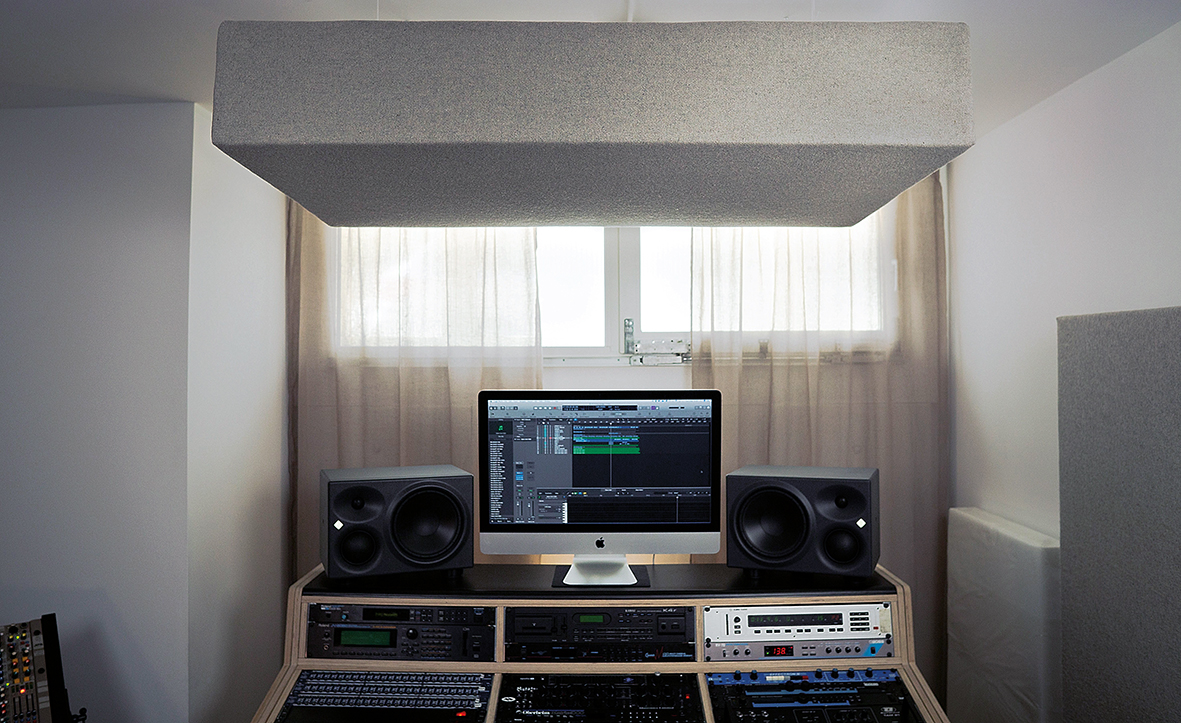
Is the latest Skudge album, Soundworks, mostly oriented towards clubs?
“The music is mostly made for the clubs, but I’ve started to make so-called ‘tracks’ using loopy beats. I mostly make music for myself, then at some point in the process I’ll start to think about who is listening to it because I want the tracks to sound good in a club environment. Some tracks can take two months to complete but one track, called November, took me three years.”
That sounds like a torturous process?
“The track was working because I had the melody but I just didn’t have the drums. I’m very picky and you have to be when you release everything on vinyl. Once you’ve released it, it’s out there and part of your catalogue, so I need to be 100% satisfied before I send it to the pressing plant. It’s not so much about the song itself but mixing, because I always have two to five versions of every track.”
The music’s spacious and fairly mid-tempo, so there’s no hiding place for your production aesthetic…
“That’s true, but I also have way more sounds going on in those tracks than people might think. If you listen to a track, you might think it’s working with five sounds but I’m typically using 20 channels on a project. I’m always layering sounds and there are a lot of subtle sounds hidden in the mix.”
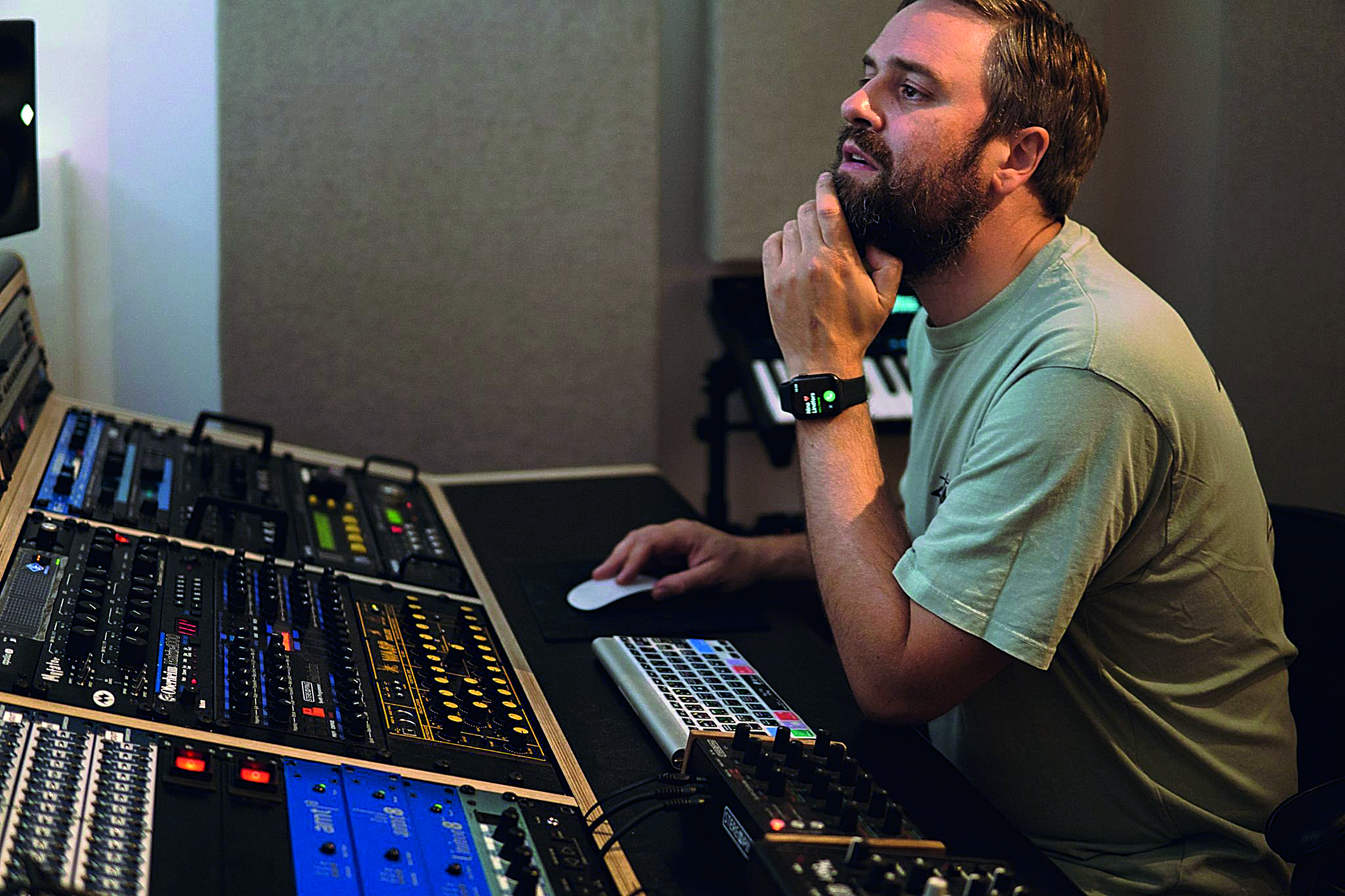
Is repetition important to your sound because you want people to stay locked into the emotion of the track?
“I always want to make the perfect loop that can go on for two or three minutes before you get bored of it, which is very difficult. For me it’s about adding funk to a track, which is all about how the drums and the bass play together. Most tracks start with a loop before I begin adding sounds and then a melody comes through. It’s hard to explain, but I want the sounds to talk to each other and the drums and the bass need to be 100% before I add any melodies.”
Where are you deriving your bass sounds from?
“Like I said, the music needs to sound funky somehow so every track tends to have three or four different bass sounds working together. For example, I might use a sub bass, a more percussive bass and a stabby bass all talking to each other and then you add the kick drum, of course. As the kick drum is also a bass, the trick is to make sure the frequencies don’t collide, which is all part of the mixing process. The basses are mostly samples I’ve created from my synths over the years. I have the 101 of course, but I’ve created my own sample libraries using synths like the Buchla Easel and Moog Minitaur. I basically recorded sounds from those devices and sold them.”
That sounds quite an economical way to create your own sample libraries…
“Or you can borrow synths for free from your friends and create a huge, super-cool library that nobody else can have. I think that’s a good tip [laughs].”
Have you moved away from a mostly software setup?
“Now, it’s probably 50/50, but if I’m doing a remix then I’ll work in the box a lot more because I’m taking stems from the original track. It’s funny though because when I’m making a remix I mostly tend to make a completely new track. I need to feel something from the sounds they’re sending, so I might end up just using just one stem – or maybe no sound at all. Ultimately, I want the remixes to sound like Skudge.”
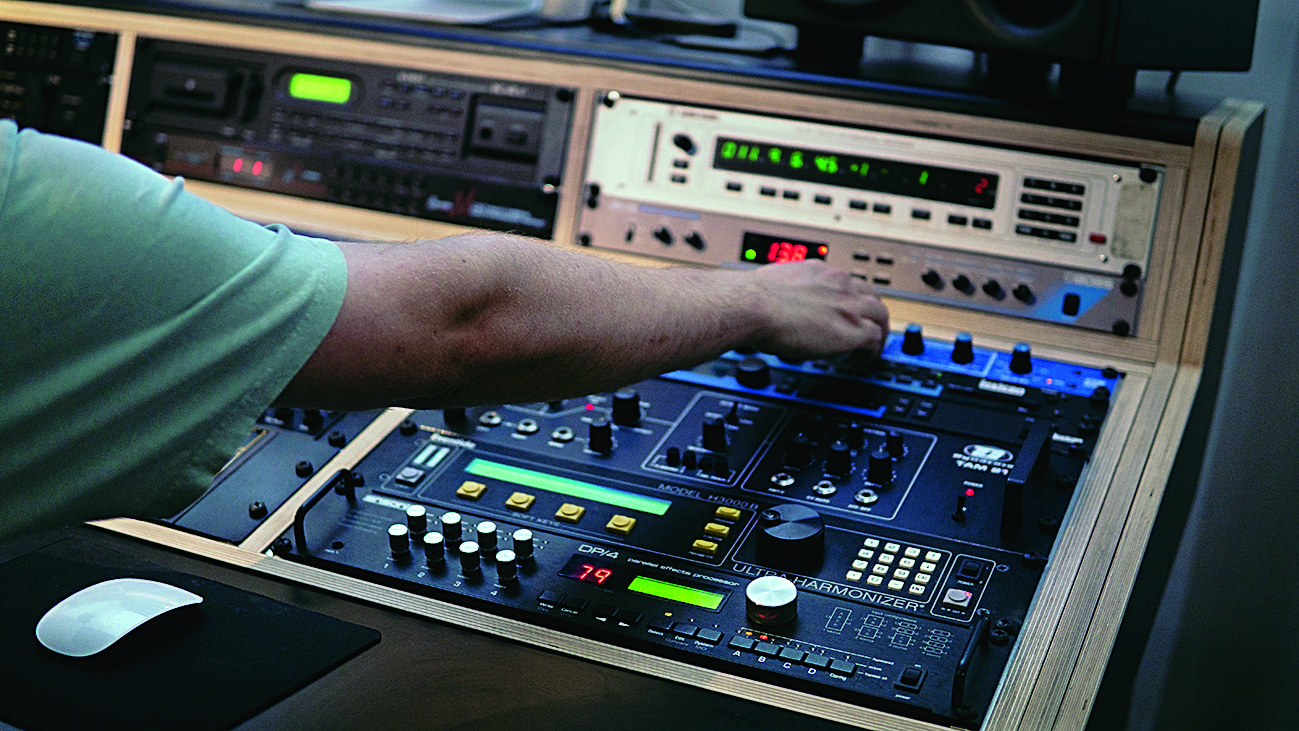
Have you ever had a bad reaction to a remix that bears no relation to the original track?
“Most of the time artists want it to sound like a Skudge track with a touch of their track, but that changes from artist to artist. One sent me my Convolution track and asked me to make something that sounded just like that, but I asked why they would want their remix to sound like such an old track. If I was lazy I could just take their stems, put them in Logic and put my kick drum on it, but having my own sound is important to me and I don’t want a track I’ve remixed to sound like anyone else.”
What can you tell us about the SKUDGE-O-NINE interface that’s sitting atop your Roland TR-909?
“It’s a breakout modification box for the 909 that allows you to control the pitch on the hi-hats and the decay on the kick drum. It also has an overdrive so you can distort the kick. A friend of mine who is really talented at modding things built it for me but there are only two of them. I’m not that technical so I don’t understand the procedure behind how it’s actually made but it’s a well-known modification that you can Google.
The RE-501 is the last machine I would sell
“Most of the people modding 909s destroy the case and mod the panel, but I didn’t want to do that because if the 909 is destroyed I can’t sell it. It’s mainly used for live work because we do a lot improvisation and I have another 909 in the studio that’s not modified because I can always change the sounds in the computer if I need to.”
Why has the Roland RE-501 Chorus Echo been such an important tool for you?
“Because I love the grittiness of it and I use the spring reverb on every track and the tape delay on almost every track. The RE-501 is the last machine I would sell. If you use a software synth and record it through that it makes it sound more alive. Basically, when you record any sound through something analogue it’s going to be a little more wobbly and out of tune. It’s definitely been a good investment.”
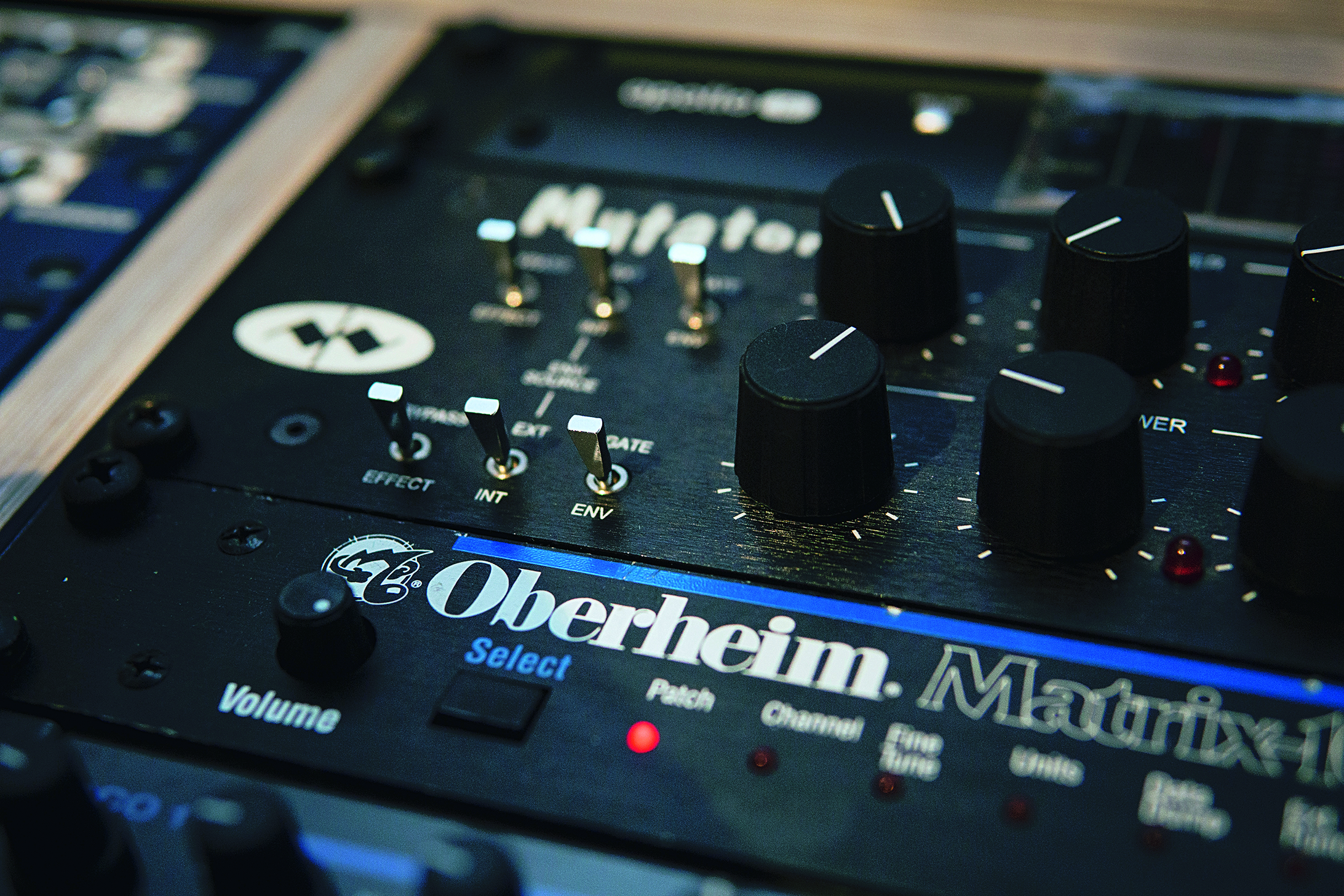
You mentioned it’s really down to how you process sound. Analogue or digital, the same result is achievable…
“If you want to sound less digital you can get faster results with analogue, but if you buy a new analogue synth it can also sound digital because it’s newly made and doesn’t have the grittiness of a vintage synth. In fact, some new analogue synths sound even more digital than soft synths. These days, most people that make techno are using software and there are so many software brands making great tools that getting an analogue sound in the box is easier than it’s ever been.”
What route would you recommend beginners take?
“Well I’ve gotten so many emails from people who have sent demos to my label saying they’ve only been using hardware. For me, it doesn’t matter – it’s not like I’m going to release a track because it’s made only using hardware – it also needs to sound good. For me, it’s better to learn software first and then use hardware, but these days it feels like a lot of people are doing the opposite – they buy a lot of hardware but the music sounds like the machines they’re using rather than themselves.
You need to put in the hours and the love for what you’re doing, and you have to believe in yourself
“Like everything, you need to put in the hours and the love for what you’re doing and you have to believe in yourself. That might take years. Sadly, I feel a lot of artists these days make some music and a year later want to have their first release, but if it takes time to find who you are as a person then it will naturally take time to find yourself as a musician too.”
Is the Pearl Syncussion SY-1 one of your secret weapons? The synth sounds amazing.
“I don’t have it anymore, sadly. It’s a percussive drum synth, so you can make bass sounds and cool drums with it, but there are a lot of clones that sound more or less like the original these days. I didn’t use it much for my Skudge productions, but I’ve used it on a lot of side projects like Splice and my house project, KEL.”
What else is essential to the Skudge sound?
“I’d say my Prophet-5. The sounds I get out of it are, more or less, the sounds that I have in my head. It’s good for stabs, basses, lo-fi pads and strings, so it’s very versatile. It’s also very expensive, but thankfully there are software versions that sound similar.”
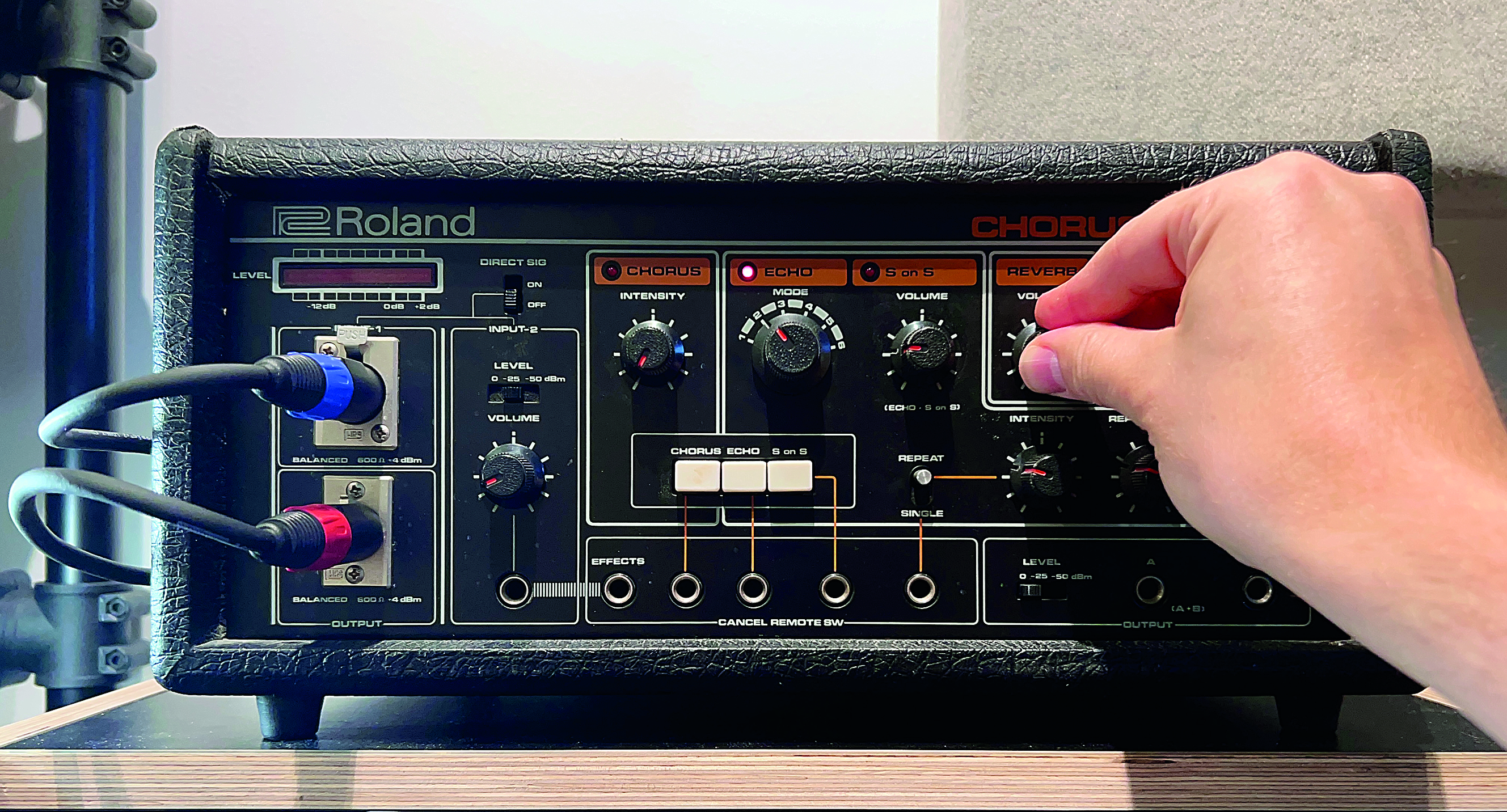
How do you approach the mixdown?
“I try to mix as much as possible while making the tracks, then I’ll polish the track on the final mix and cut away any frequencies, for example if the hi-hat or resonance on the stab is too loud. Everything needs to be 100% before it’s pressed because if the hi-hat’s too loud it can distort on the vinyl and the mastering engineer isn’t a magician. They can do a lot, but mastering for vinyl is a completely different process to digital.”
How much of your mixing process is graphical?
“It’s a mostly non-graphical procedure, but I need to look at the screen because obviously you don’t want any sounds to peak. At the same time, it also needs to sound good so I trust my ears and use a lot of outboard EQs and compressors for mixing. I’m addicted to outboard digital reverbs like the Ensoniq DP4 and the Eventide H-3000 Ultra Harmoniser. I also have two Lexicons and a Klark Teknik reverb.”
Do you ever share any of your sampled sounds?
“I mostly record my own sounds but I did record some for Swedish synth manufacturer Elektron. If you buy their Model: Samples sequencer/sampler you’ll get some Skudge sounds with that. I basically recorded about 300 sounds for them, they picked out a few that they wanted to use and I got to keep the rest for myself.”
Is it harder to be original in 2022?
“It’s way easier to become a producer now because you have unlimited tools and the computers are way more stable. When I started out in 1997 using Emagic’s Logic, the memory was so much less and the hard drive smaller so you needed to problem-solve. I only had a small amount of hardware and yet somehow those tracks sound better than ones made in the box today [laughs].”
The new Skudge album, Soundworks, is out now on Skudge Records.

